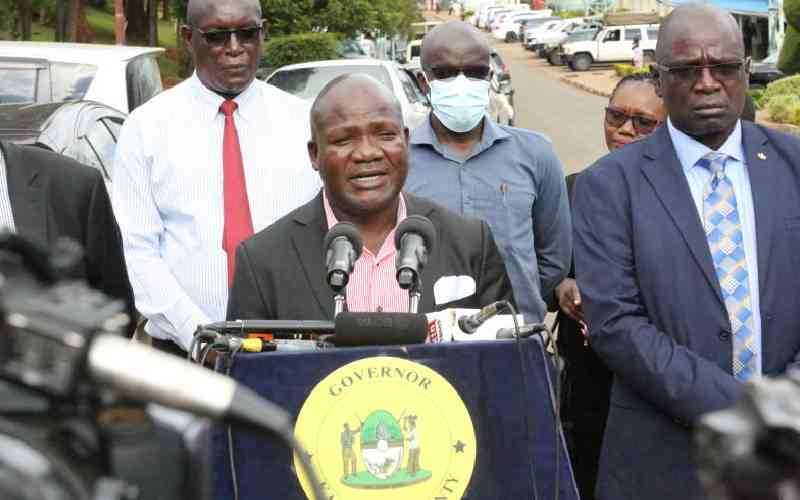×
The Standard e-Paper
Smart Minds Choose Us

Kakamega Governor Fernandes Barasa addressing the media at Kakamega County Referral Hospital on April 14, 2023. [Benjamin Sakwa, Standard]
The county government of Kakamega plans to revive the stalled Kakamega Global Tea factory at Madala village in Shinyalu sub-county.